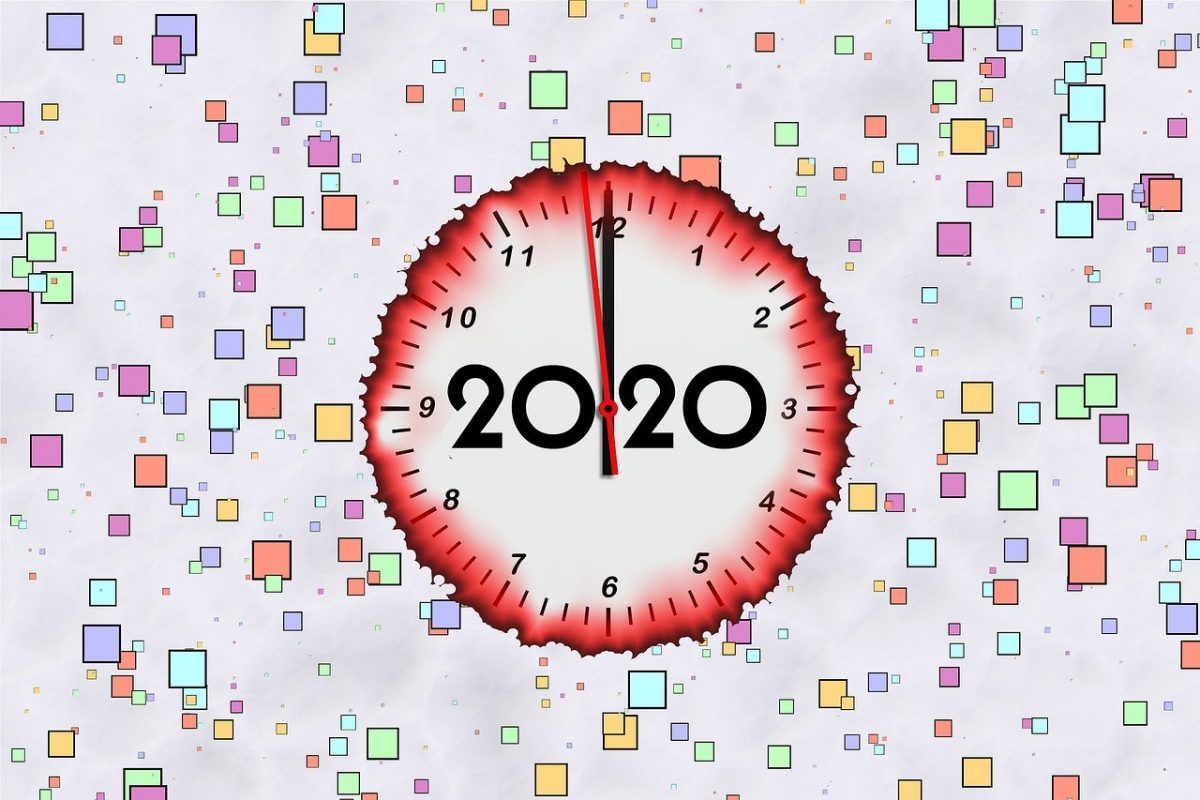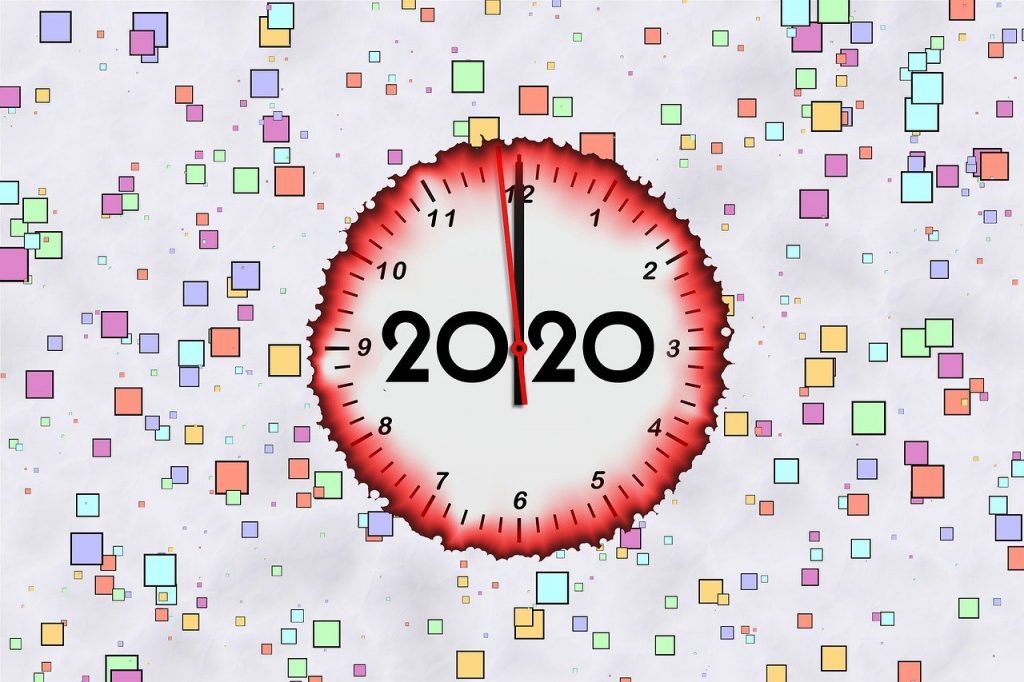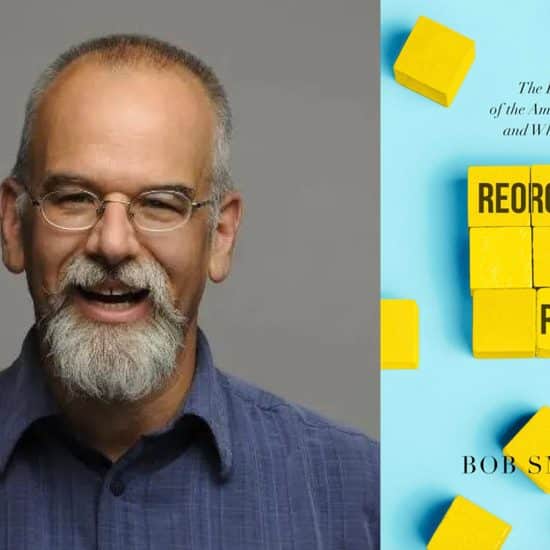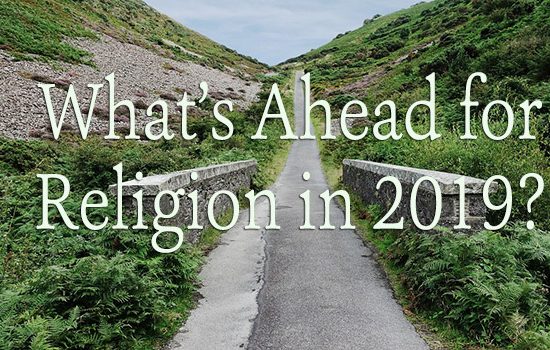

Image by Susan Cipriano from Pixabay
(RNS) — The past year on the religion beat began with a prayer meeting and weeklong retreat by U.S. Catholic bishops, hoping that by fasting and prayer they might find a way forward in response to the ongoing abuse scandal in the church. It ended with a pair of attacks on faith groups: five people stabbed while attending a Hanukkah party and three people killed during a church service in Texas.
In between were moments of grief and scandal, hope and resilience.
As we enter the new year, we asked Religion News Service’s reporters to give us a glimpse into the stories they’ll be following in 2020.
Adelle M. Banks
Southern Baptists have started the journey of addressing sexual abuse within their ranks but they have a long way to go. They focused on the issue and held a time of prayer and lament at their 2019 annual meeting and have offered new resources. It will be worth watching to see what happens next, including how a new committee handles accusations of abuse against local churches and what role a new president, who will be elected in June, will play in the denomination’s next steps.
African American voters of faith are bound to have an influence on the coming election year. Many may be in Joe Biden’s corner and few seem to support Pete Buttegieg. How will this group, which has organized “Souls to the Polls” events in past elections, work toward Election Day 2020? Will they be successful in achieving voter turnout?
Religious freedom issues will remain a focus of the Trump administration. What shape its actions take in the next year and how much difference the administration makes in reducing religious oppression across the globe remains to be seen.
Alejandra Molina
The Mexico-based La Luz del Mundo church held its most sacred ceremony, dubbed the Holy Supper, in the United States for the first time in February 2018. This signaled what some religion experts saw as the church’s increasingly important role in the U.S.
Those plans seem to have stalled after the group’s leader, Naasón Joaquín García, was arrested in June 2019 on human trafficking and rape charges. García, who is being held with no bail in a Los Angeles jail, has pleaded not guilty. His case remains stalled in the courts.
The church claims millions of worshippers across the world, with 12% of its estimated 1 million U.S. members in California, according to a church spokesman. A number of La Luz del Mundo temples are in Southern California, predominantly in Latino communities such as East Los Angeles, Huntington Park and San Bernardino.
While its leader remains in jail, where does the church go from here? In the New Year, I will explore why many congregants still staunchly support García. I also want to learn more about those who have left the church over the years and what effect La Luz del Mundo continues to have in their daily lives.
Aysha Khan
I’m keeping a close eye on issues of surveillance and digital privacy.
After 9/11, many Americans said they were willing to trade their personal liberties and privacies for the sake of the country’s security. After all, they said, they have nothing to hide.
But since 2013, when whistleblower Edward Snowden exposed the scope of various state-run surveillance programs ostensibly protecting our national security, we’ve seen a paradigm shift in how ordinary citizens think about surveillance. Facebook’s 2018 Cambridge Analytica scandal made many people increasingly concerned about online monitoring and tracking.
As news breaks almost daily about how our personal data from social media sites, our own phones, at-home DNA kits and devices like Amazon’s Alexa and Ring is being collected and left unprotected, that concern is only growing.
With the rise of facial recognition technology and growing awareness of how such tools have been weaponized by other nations, I’m expecting that at some point in the next decade the public will push back strongly on the unregulated use of such cutting-edge technology — both by the state (airport officials, law enforcement) and by private companies (grocery stores, home security devices).
What does this have to do with religion? Muslims and other minority groups have always borne the brunt of mass and targeted surveillance alike, especially post-9/11. Soon enough, our growing awareness of how our phones and cars and streetlights are harvesting our personal data — and selling it to the highest bidder — will boil over to other faith groups and the general public. And I suspect minority faith groups will lead the charge in pushing for privacy protection.
Claire Giangravé
In the nearly seven years since Pope Francis was elected, expecting the unexpected has been the main and consistent trend. The activity of the pontiffs, once dictated by summer retreats in the papal estate of Castel Gandolfo and an unofficial “no big news” policy over the holidays, has been overhauled under Francis’ leadership.
“A church on the move,” as the pope calls it, keeps up with the restless pace of the times, be it by engaging in dialogue with big-tech companies, combating the modern challenges of migration or promoting an active Twitter presence. These aspects will probably continue in the coming years.
Francis’ year-end speech to the powerful department heads at the Vatican focused on the importance of change, and more is likely to come as the pontiff addresses his reform mandate. On the to-do list there still remains a need to address the ongoing crisis of sexual abuse by clergy, cleaning up the scandal-ridden finances at the Vatican and streamlining its cumbersome and often overlapping departments.
In the past decade, two popes have tried to address this ambitious plan, achieving results that are as painfully slow as they are revolutionary. The Catholic Church is expected to make more such steps as it moves into the 2020s. But, as it’s well known inside the Vatican, Rome wasn’t built in a day … or a decade.
Emily McFarlan Miller
Religion reporters from across the country ranked the conflict within the United Methodist Church over the inclusion of its LGBTQ members the third biggest religion story of 2019.
It’s the No. 1 story I’m watching going into 2020.
Four years ago, the denomination’s global decision-making body ended a contentious 2016 gathering by calling for a special session to decide the church’s stance on sexuality. In 2019, that session approved a plan strengthening existing language banning the ordination and marriage of LGBTQ United Methodists, surprising many by rejecting a more moderate plan that had been recommended by the denomination’s Council of Bishops.
The fallout came swiftly: Many LGBTQ United Methodists and their allies vowed to remain and resist. Several groups met to discuss the future of the United Methodist Church. Some have proposed plans that would split up the denomination and its related institutions. Southern Methodist University moved to cut ties with the denomination, ahead of any potential schism. Bishops in the Western Jurisdiction of the United States declared a “safe harbor” for LGBT clergy.
Against that backdrop, the United Methodist General Conference will meet again for its quadrennial gathering in 2020.
It’s not just a big story because of the size of the United Methodist Church — the second-largest Protestant denomination in the U.S. — or the very real impact the decision will have on the lives of LGBTQ United Methodists. It also touches fault lines that have been exposed in the denomination, in American Christianity and an increasingly politicized and polarized country as a whole.
I’ll continue to watch those widening fissures within evangelicalism, too, and how they’ll impact evangelical support for President Donald Trump heading into the 2020 presidential election and other issues like immigration and the refugee crisis.
Jack Jenkins
Looking ahead at 2020, the most obvious storyline I will continue to cover is the election. I’m hoping to home in on the different populations — evangelicals, black Protestants, etc. — as well as the faiths of candidates themselves and the religious groups they listen to. I also expect this story to shift once the general election begins in earnest, as it will pivot to include conservative voices, new political groups (such as Pentecostals), etc.
Other than that, I expect to continue to track the fallout from the resurgence of the sex abuse crisis rocking the Catholic Church, but also dig deeper into what it means to be a Catholic in 2020. In addition, I do not expect immigration and refugee-themed stories to wane, and I will continue to track those with regularity.
As for odds and ends, I hope to stay on stories involving religion and technology, be it faith groups and trains or religion and space.
Yonat Shimron
Anti-Semitic incidents continued to erupt across the country this year and they ranged from last month’s New Jersey kosher deli rampage that killed six, including two Jews, to U.S. Rep. Ilhan Omar’s tweets early in the year, in which she suggested that pro-Israel lobbying groups hold undue sway over American policy because of their campaign contributions.
But there is no agreed-upon understanding of what anti-Semitism is and a lot of debate, both within and without the U.S. Jewish community, about how to define it. While some incidents are clearly anti-Semitic, others are open to interpretation. The issue came up again recently when Trump issued an executive order directing the government to consider race and national origin when investigating anti-Semitism on campus. I’m interested in exploring how accusations of anti-Semitism have become contentious and contested.
I’m also interested in continuing to probe the contours of the U.S. evangelical community as we head into 2020 elections. The Christianity Today editorial calling for Trump’s removal from office highlighted the rift within the evangelical community that has been simmering under the surface. On the whole, white evangelicals remain among Trump’s staunchest supporters, but I’m curious to explore whether there’s an opening for a more critical stance to emerge in churches around the country and especially in the South, where the president is particularly popular.



